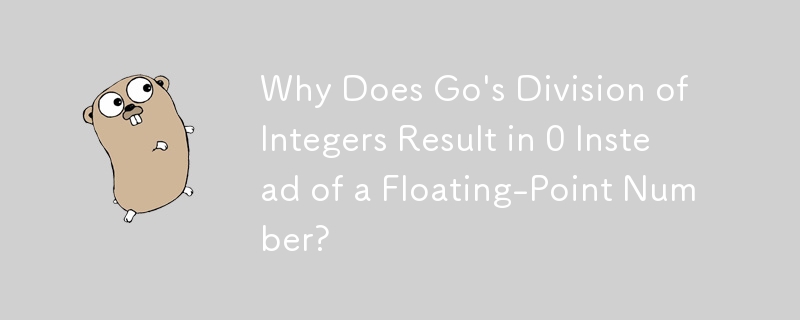

Floating-Point Division in Go
Despite the apparent simplicity of division, implementing this operation in Go may encounter unexpected results. As illustrated in the provided example:
fmt.Println(3/10)
This code snippet surprisingly yields "0" instead of the expected "0.3". To understand this behavior, it's crucial to delve into the intricacies of Go's type system.
In Go, the operands of the division operator are untyped constants, meaning their data type is not explicitly specified. According to the Go specification, when dealing with binary operations with untyped constants, the result's data type is determined by the precedence of the types involved. In this case, both operands are integers, resulting in an untyped integer expression with a value of "0".
To obtain a floating-point constant result, one of the operands must be explicitly typed as a float. Here are some examples that demonstrate this:
3.0 / 10.0 3.0 / 10 3 / 10.0
In these expressions, the floating-point constant (e.g., "3.0") ensures that the result is also a floating-point constant with a value of "0.3".
Alternatively, if one operand is a typed variable, the typed variable's data type prevails. For instance, the following expressions convert the integer variables to float64 values and yield "0.3":
var i3 = 3 var i10 = 10 fmt.Println(float64(i3) / 10) fmt.Println(3 / float64(i10))
The above is the detailed content of Why Does Go's Division of Integers Result in 0 Instead of a Floating-Point Number?. For more information, please follow other related articles on the PHP Chinese website!




